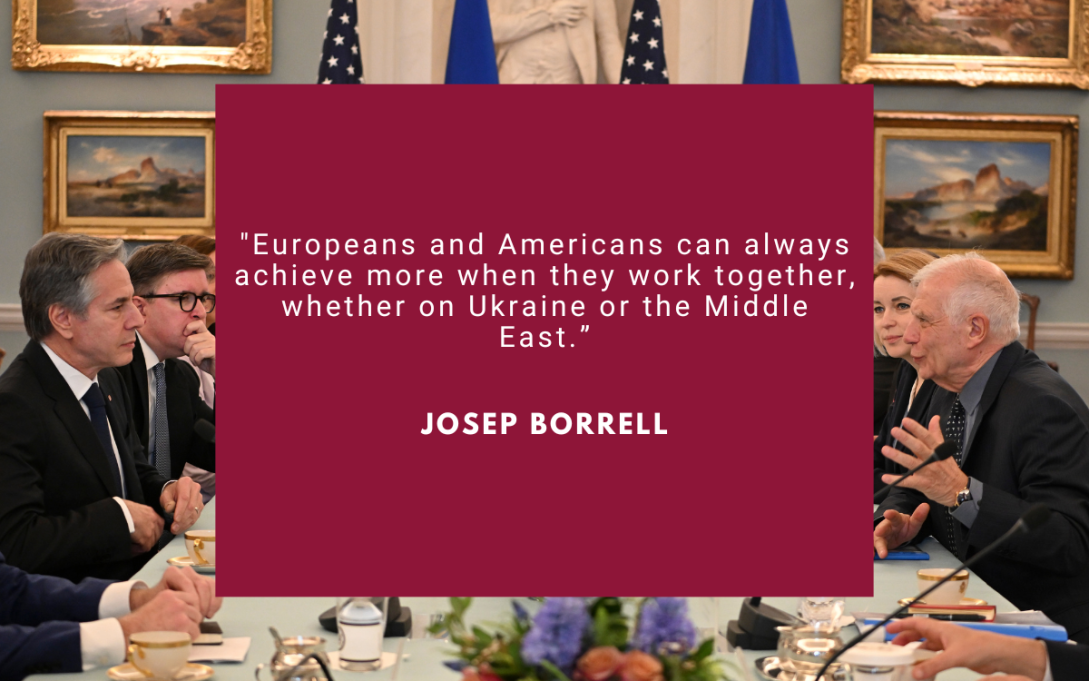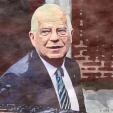Three takeaways from the United States

Once a year, the UN Security Council discusses the cooperation between the European Union and the United Nations. Today, the state of the world is deeply worrying, but it would be even more so, if we did not have the United Nations, whose values and principles remain a compass for humanity. For us Europeans, the UN remains the cornerstone of the international system
However, the Charter of the United Nations is increasingly flouted or ignored. While we would need more multilateral cooperation to face the many global crises - ranging from security challenges and humanitarian catastrophes to climate change - we see the opposite: a trend towards fewer agreements and more and more vetoes, paralysing, in particular, the UN Security Council.
The state of the world is deeply worrying, but it would be even more so, if we did not have the United Nations
The discussions in New York largely focussed on Ukraine, Gaza and EU-UN cooperation on peace and security, in particular in Africa. On Ukraine, I appealed to the UN membership never to accept the normalisation of Russia’s blatant violation of the core principles of the UN Charter – sovereignty and territorial integrity – which, as a permanent member of the UN Security Council, Russia is meant to uphold.
On Gaza, I asked the UN Security Council to act. Its population is no longer ‘on the brink of famine’, but in a state of famine. The EU has massively increased humanitarian aid, but this aid must reach the people in need urgently. We cannot let people starve while trucks are waiting at the border. Israeli authorities must stop impeding humanitarian access and end this man-made catastrophe.
However, we also need to address not only the symptoms but also the root causes of the Israeli-Palestinian conflict. I encouraged the UN Security Council to take action and draft a new resolution defining the principles and the timeframe to make the two-states solution a reality.
I encouraged the UN Security Council to take action and draft a new resolution defining the principles and the timeframe to make the two-states solution a reality.
I also briefed the UNSC on the EU’s commitment to peace and security in Africa. The EU has been working closely with the African Union and Regional Economic Organisations. However, military coups are multiplying and tensions are growing in many regions. The unmatched economic, and human potential of Africa will remain untapped as long as many regions continue to be plagued by insecurity. The international community needs to help the continent more efficiently to find “African solutions to African problems”. It must urgently address in particular the major humanitarian tragedy in Sudan, with almost eight million people displaced, the world’s largest internal displacement crisis, and almost half of Sudanese at risk of starvation.
The vast majority of the UN Security Council membership valued the partnership with the EU. As expected, Russia was the exception. The Russian ambassador repeated a familiar narrative, which saw the EU as an ‘aggressive, expansionist bloc, subordinated to NATO goals’, but he found himself isolated. China, in particular, was more supportive of EU-UN cooperation than in previous years, stressing the need to avoid a confrontation between blocs and to work together in line with the UN charter. The African members of the Security Council, Algeria, Mozambique, and Sierra Leone, welcomed the EU’s work on their continent and expressed the expectation that we continue supporting African Union peace support operations.
Taking the political pulse in Washington
In Washington D.C. I met with Secretary of State, Anthony Blinken, Republican Congressman Don Bacon, various think tankers and academics, including former Palestinian Prime Minister Salam Fayyad, and held a speech at Georgetown University.
On Ukraine, my message to US decision-makers has been very clear: A Ukrainian victory is essential for Europe’s security, but also for the US. Europeans are already shouldering the majority of the burden of the support to Ukraine, but US military support remains essential. Not only out of solidarity, but also out of US self-interest.
My message to US decision-makers has been very clear: A Ukrainian victory is essential for Europe’s security, but also for the US.
If despite two years of EU and US support, Putin could indeed conquer Ukraine, install a puppet regime, like the one in Belarus, and crush the Ukrainian people, why would he stop there? Putin has been very clear that he already sees himself in a war with the entire West.
A Ukrainian defeat would encourage authoritarian regimes elsewhere and put enormous pressure on America and its system of alliances. No country could be sure anymore that – despite clear support from the US public and a majority of lawmakers in the Congress – the US government would come to the help of an ally under attack. The price of inaction or delay would be much higher for the US than supporting Ukraine now.
Overall, the picture that emerged is one of continued bi-partisan support for US military aid to Ukraine. However, whether this support will translate into a positive vote in the House of Representatives remains to be seen. The rules of procedure of the House make it possible for the Speaker to decide whether or not a vote is held. In my many discussions with academics and decision-makers, opinions varied significantly on the prospects for success.
I perceived a significant change in the mood in the U.S. in the face of 30,000 civilian victims and spreading famine in Gaza.
On Gaza, I perceived a significant change in the mood in the U.S. in the face of 30,000 civilian victims and spreading famine. Several American interlocutors explicitly welcomed the resumption of EU contributions to UNRWA and our increase in humanitarian assistance. During my time in the US, the categorisation by Chuck Schumer, the Majority Leader of the Senate, of Prime Minister Netanyahu as “an obstacle for peace” was at the centre of many discussions. It was a small political earthquake reflecting this changing mood.
The slow convergence of the American public’s stance on Gaza with views held by many Europeans, and large parts of the world, is good news. No matter the issue, Europeans and Americans can always achieve more when they work together, whether on Ukraine or the Middle East.
MORE FROM THE BLOG

“A Window on the World” – by HR/VP Josep Borrell
Blog by Josep Borrell on his activities and European foreign policy. You can also find here interviews, op-eds, selected speeches and videos.
